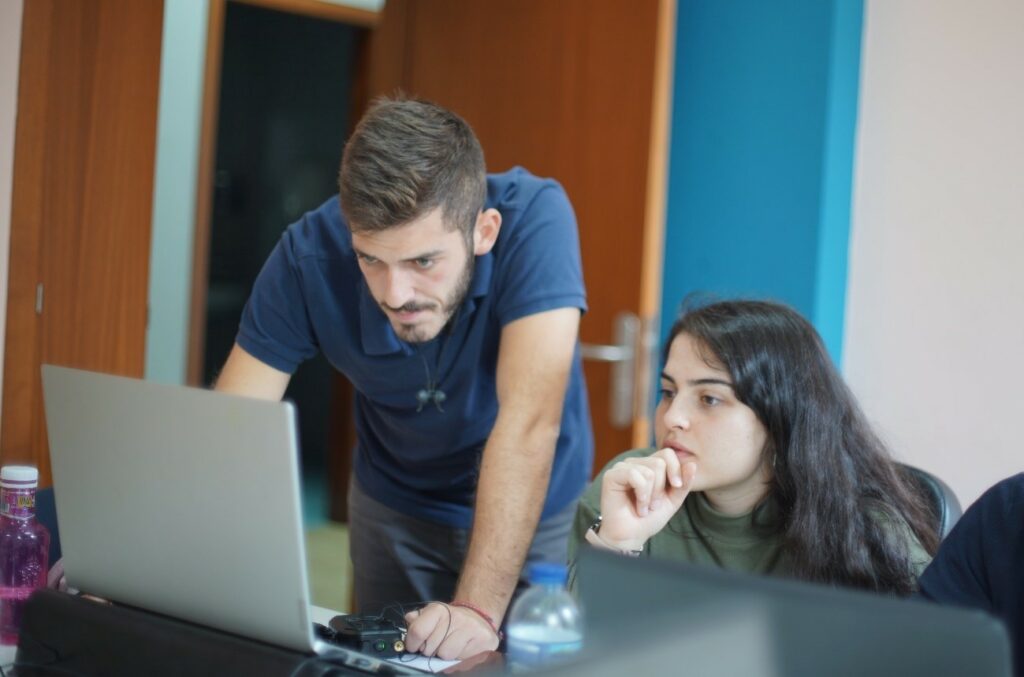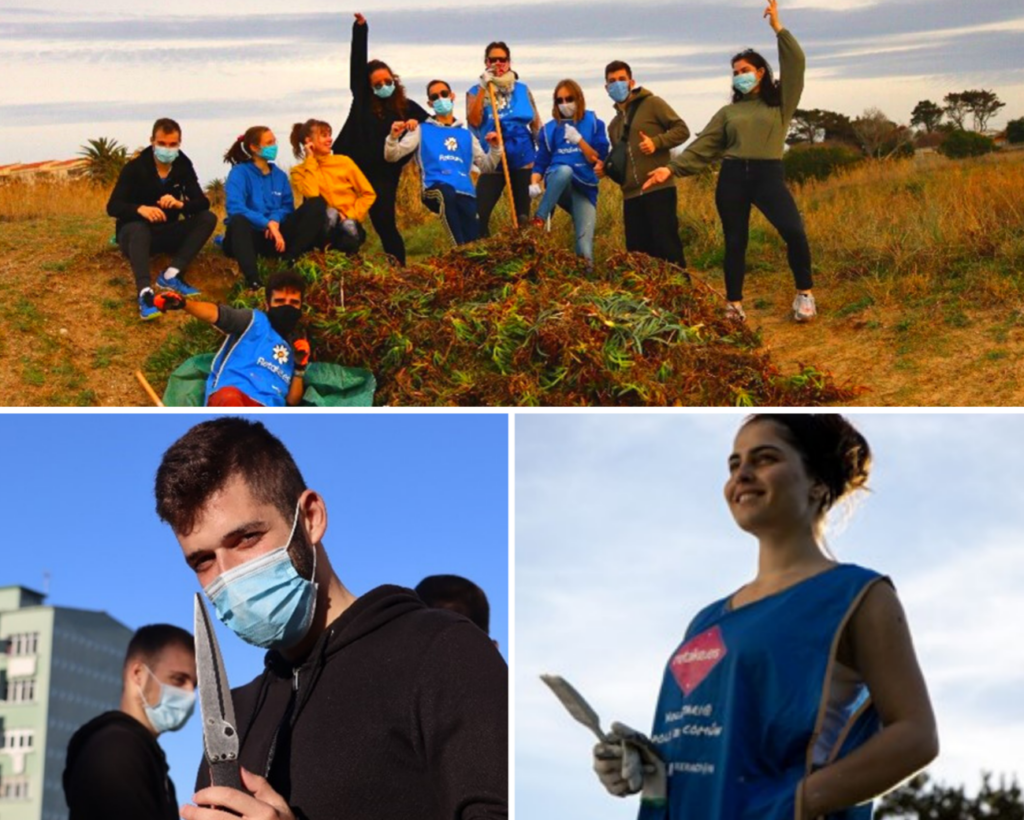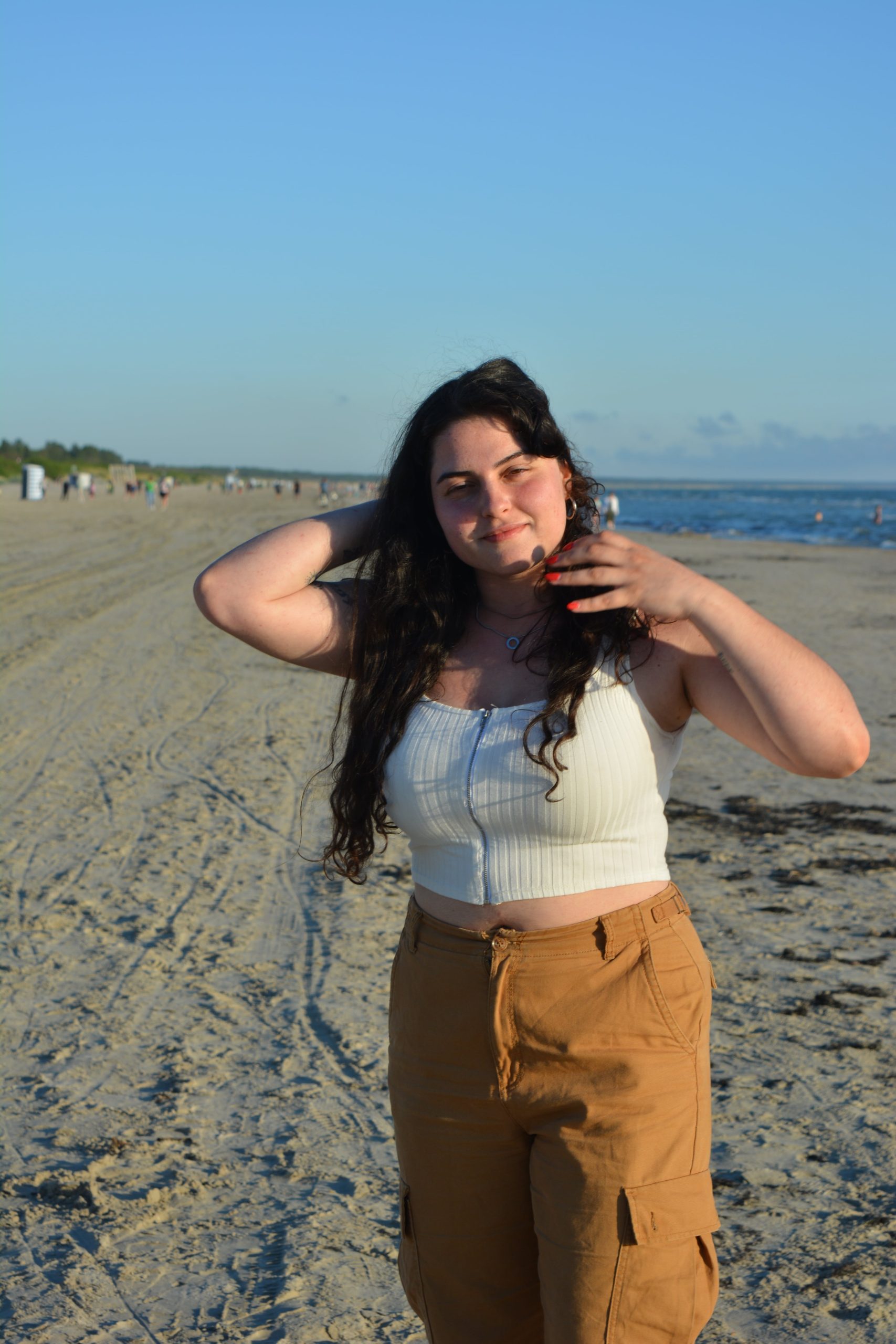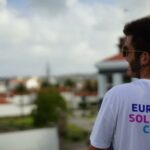ISOC – A3 Spain
General Information
The second volunteering program of ISOC project took place in Ferrol, Spain, by the Organization Xeracion, which hosted our Volunteers Sofia K. and Tasos for 9-months.

Again, as dictated by the rules of the ESC program, each Volunteer had a designated coordinator (tutor), who was their key reference point for task-related support. In addition, each Volunteer was assigned with a mentor, who helped their smooth integration in the social and cultural life in Ferrol and facilitated their self-reflection and personal growth through this learning experience!
Activities
The first month in Spain was in essence an introduction to the program. During the first days our Volunteers had a series of meetings with their tutors, during which they received detailed explanations about the nature of the program, the planned activities, the vision, fields of action and work ethic of the organization, while queries and doubts were clarified on any issue.
Little by little the Tasos and Sofia K., together with the volunteers from other programs, started to join the team-building activities of the organization, such as group yoga, volunteers’ meetings and small trips in nearby areas during the weekends!
Already from the first days, Sofia K. and Tasos started practicing their English, both through the Online Linguistic Support (OLS) tool, as well as through the meetings with the tutors and the other volunteers.
“Buddy 4 Youth” Program
English Lessons: In the context of the hosting organization’s collaboration with NGO Movilidad Humana, the Volunteers offered, twice a week, free English Lessons to migrants from Latin America living in Ferrol, with the aim to equip them with the necessary competences to meet the labour market’s demands, enhance their employability and, thus, support their integration to the local community as financially independent citizens.


Language Exchanges: Every Thursday the Volunteers organized a meet-up of different young people from the local community and abroad to discuss about a specific subject of youth’s interest (e.g. Music & Cinema, Food, Traditions in Europe, Discovering your philosophical thoughts, Sustainable habits etc). While meeting new people and sharing views on various topics, the Exchange groups also practiced their language skills in English, Spanish, Galician (the local dialect) or any other language depending on the members’ countries of origin!

Retake initiatives: In regular intervals during the project, Tasos and Sofia K. coordinated meet-ups with local young people, each of which had a specific mission of ecological interest, and all of which aimed at activating young people’s commitment to enhance the environmental well-being of their city. During the Retake initiatives, the participants planted trees and seeds in various parts of the city, removed expansive plant species, cleaned streets, beaches and parks, restored of an outdoor laundromat, organization of spare parts markets, etc.

Speak Factor workshops: Every first Wednesday of the month a public speaking workshop was organized, where each participant had to prepare a short presentation about an issue of concern for the local community and ask for feedback from the audience (other young people, citizens, civil society representatives) on possible solutions or next steps.
Skills–sharing workshops
This initiative was inspired by a team activity organized by Xeracion for all its Volunteers, who had to share one of their skills or passions with the other Volunteers of the organization. Sofia K. and Tasos decided to open-up this tradition to other young people from the local community. Thereby, each Friday a workshop was offered, each targeting a specific set of soft skills important for the professional and personal development of youth. Over the course of their Volunteering placement, a diverse range of workshops was implemented; “Critical & Creative Thinking”, “What it means to have Entrepreneurial Spirit”, “Team dynamics management”, “Intercultural sensitivity and communication”, “Project Management Basics”, “Introduction to photography and video-making”, “Self-awareness and psychological well-being”!


Creation and care of the “Urban Garden”
After a long-pause of external and physical activities, due to Covid-19, Xeracion together with 4 other local organizations decided to transform a shared green space into an “Urban Garden” with the help of Volunteers. Tasos and Sofia K. joined this transformation process and together with the the Volunteers from the other organizations worked every week on planting seeds, and vegetables, taking care of the soil and the crops and arranging weekly meet-ups with the other organizations for networking and exchange of ideas.
Through this activity, our Volunteers had the chance to work on something that will stay long after their program’s end and leave a legacy of solidarity to their hosting community. The ”Urban Garden” serves nowadays as a place where the NGOs organize environmental awareness workshops and events for children and young people, but also a place to produce fresh and eco-friendly vegetables to be consumed by their Volunteers.


Project management and design of various youth programs
As an active part of the hosting organization, Tasos and Sofia K. contributed significantly in the management and promotion activities of Xeracion’s ongoing and under-development projects. Searching for partners and creating partnership networks, planning non-formal education workshops, undertaking communication and dissemination activities such as creating posters, videos and other visibility materials, managing social media channels and websites, were some tasks our Volunteers got involved, gaining precious insights into the various phases of the Project Management Cycle.

As part of their dissemination and promotion activities, our Volunteers had an important role in the creation of the Newsletter Videos of the Hosting organization that are uploaded in Xeracion’s Youtube Channel, including tasks such as script writing, video-shooting, editing and acting!
Personal Project
In the middle of the project the Volunteers were called to work on a personal project concerning a topic of their interest, that could address the needs of the local community, and transform this way one of their ideas into reality, while leaving a legacy behind for the benefit of the local and/or European community.
Sofia K. and Tasos choose to work on the design, planning and proposal development of European programs for Youth, which were then submitted to the National Agencies in Spain and in Greece, and both got approved and will be implemented in Winter 2022!!

ECO-Backpackers is a 2-week long ESC Volunteering Teams program, which will take place in Pieria, Greece. The project consist of a diverse set of activities, such as hiking at the foothill of Mt. Olympus, actions and workshops in different villages aimed at promoting pro-environmental behaviour, beach clean-ups & environmental awareness events.

Eurolibrary is an Erasmus+ youth exchange project that will take place in Santiago de Compostela in Spain. As part of this Exchange, a “mobile mission” will be carried out with the aim to spread the values of Erasmus+, volunteering, intercultural exchange and the active participation of young people! Participants will travel in Camper Vans and make stops in various villages along Santiago’s Way, in each of which they will organize information events and non-formal learning workshops for the young people living in these remote areas.
In addition, Tasos, wanted to spread the values of volunteerism and share his knowledge about the ESC framework with peers in his homeland, so that as many young people as possible get an overview of the available opportunities offered by ESC for gaining volunteering and professional experience, and grow at a personal, professional and social level. To achieve this he created the informative videos below:
End of the Placement
After the end of their Volunteering placement, EKO had a “post-project” evaluation meeting, during which Tasos and Sofia K. reviewed their volunteering experience as a whole, reflected on their learning outcomes and achievements and examined different ways on how to capitalize on their experiences in terms of further education, employment or civil society engagement.

